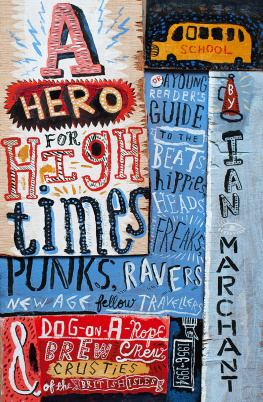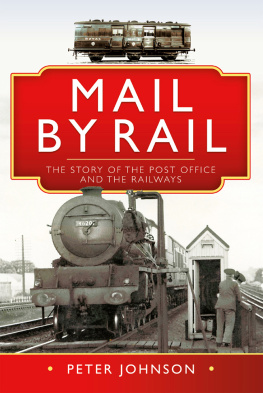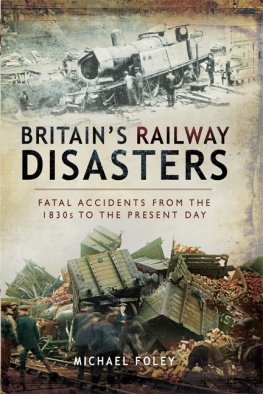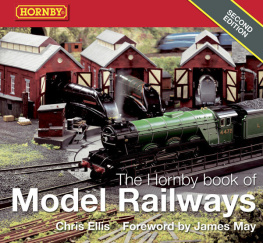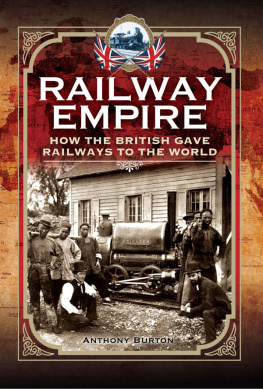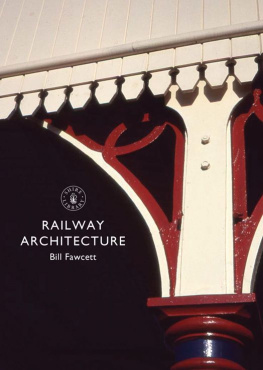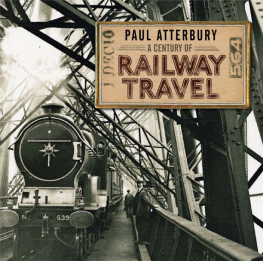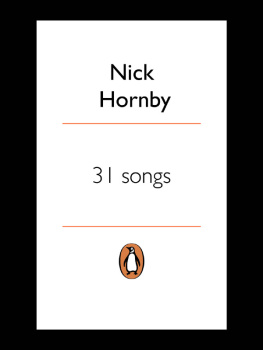
For Christine Kidney
Contents
1
The Train Now Standing
Hello.
A girl was talking to me, a pretty black girl. She was twenty, maybe a year or two younger.
Hello, she said again. I was trying to look at St Pancras Station, from the opposite side of the Euston Road by Camden Town Hall, and I was embarrassed to be caught by girls on my first day as a train enthusiast, and I wished shed go away. But where I come from it would be rude not to say hello back.
Hello, I replied.
She smiled. She wasnt wearing many clothes, I couldnt help but notice.
What are you doing?
Im just looking.
You look all you want, love.
I will. Thank you.
Her friend, younger still, a blonde in a pink mini-skirt, seeing that I had been engaged in conversation, came hurrying up.
Hello, she said.
Hello, I replied again.
Weve got a place we can go, said the blonde girl. Hundred and fifty quid for both of us.
That seems reasonable, I said.
The girls smiled, the black girl took my arm, and I realized what they were offering.
Ah, no. Sorry. I thought you meant that you had a place which cost you both a hundred and fifty pounds Sorry Im not interested in I mean, obviously I am, but when I said it seemed reasonable I didnt mean that you seemed reasonable. Though Im sure you are. Very reasonable. But I like stations, you see. Im here to look at the station. I nodded towards St Pancras.
The black girl let go of my arm.
Wanker, said the blonde.
I had not handled this well, and I scuttled down the subway to the safety of the Underground.
A fascination with railways, I have discovered, is one of those things almost guaranteed to put a woman off, like socks with sandals. They see themselves (not without some justification) spending weekends in engine sheds, or looking after the flask and sandwiches on the end of the platform at Crewe, or spending a fortnights holiday visiting the Great Little Trains of Wales. Women and trainspotting dont mix, you might imagine. Mostly, you would be right.
But not entirely. Sometimes you do meet lasses at platforms end. I did. It was only when I started dating a lady trainspotter, a train-spotterette, that I became interested myself. At weekends, when I came to London to visit her, we would set off for Steam on the Metropolitan open days, or travel on the newly opened Jubilee Line, getting off at all the new stations to admire the architecture. What red-blooded guy hasnt dreamed of a girlfriend with a passionate interest in Underground trains? Just imagine a girl with the same interest in hard facts and figures as yourself. So what if her facts and figures arent as interesting as yours? At least she wont get at you for pointing out that Birmingham has more miles of canal than Venice, or tell you youre boring just because you know the titles of all Elvis Costellos B-sides. How can she, when she wants to talk about abandoned Underground stations, or about how the District Line used to go to Windsor?
Id always known, secretly, that I had a train buff in me somewhere; it just needed awakening, nurturing, and when the relationship died, a soft spot for trainspotting was one of the things that I took away with me.
And then rail disaster piled on top of rail disaster, an astounding indifference from our political masters, corruption and gross mismanagement at the highest level of the rail industry, strikes and delays and breakdowns. After Hatfield, rail travel became intolerable for several months. We all heard the stories; nineteen hours from Nottingham to Sunderland, fourteen from London to Exeter.
It was while sitting on a post-Hatfield train from Manchester to London, a journey which would normally take a couple of hours, but which on this occasion took eight, that I realized all the trainspotters were still there, there on the end of the platform at Stafford and Crewe, still eating egg sandwiches from greaseproof paper packages, still writing who knows what in their little black books. They didnt care about a bit of horror, didnt see it somehow. The passengers on the trains were full of righteous hatred, but the spotters hearts were still bursting with love. I began to think about the two railways; about how there is this railway that we use and hate, and about how there is this railway that we remember, or imagine we remember, and love.
The railway has been a national obsession since 1825.
The British have lived with the railway for 175 years. For a long while, it was a love affair. For the first 100 years of its existence, the steam-hauled railway was the height of modernity. Steam traction was at the cutting edge of technological development in the 1820s and 1830s. The Railway Mania of the 1840s was the dot.com bubble of the Victorian Age. In its time the railway has symbolized complacent mercantile prosperity, imperial power, architectural splendour and industrial innovation. It was seen to promote freedom of movement, the growth of the middle class, the mushrooming of the suburbs and the birth of mass leisure.
Filippo Marinetti, in the Futurist Manifesto of 1909, claimed that the railway was the living, breathing apotheosis of futurity and hence of aesthetic possibility. Marinetti would rather watch an engine enter a great metropolitan terminus, steam and sparks flaring from its smoke stack, than see any amount of Old Master paintings, and for him the gargantuan breath of boilers, the gasping pistons and the screech of brakes were the authentic symphonic music of the time.
The railway was it.
Until it became the killing engine of the Western Front, the most effective weapon of war yet devised by man, as millions of soldiers entrained for the Somme. The love affair turned sour.
Weve never forgiven it; but nor have we ever forgotten what it was. Now there are two railways: the real railway, and the railway of our dreams.
The first is just shit.
Your wallet 75 lighter, you are sitting outside the bog on an InterCity 125 (125 refers to the speed at which the engine travels one mile every twenty-five minutes) with Rod and Doug from Motherwell, they cheerily talking about what theyd like to do to the English and sipping Tennants from tins with pictures on them of girls called Shona or Fiona, their paps oot fe thlads; you trying not to laugh, or whimper, trying to focus on your book, but having to get up every time someone wants a piss.
The seat of your trousers clammy and cold, you lurch through carriages stuffed with those bastards who actually got a seat for their money, stopping only to press your groin into old ladies ears to allow the train manager to squeeze past. You make your way to the buffet for a plastic cup of hot water, an enfeebled teabag clinging inside like a wee brown limpet with a silver foil foot, two plastic containers of Tastes Like Real Milk, a bag of peanuts and a whortleberry jam doughnut. Now 6 the poorer, you rejoin Rod and Doug.
Doug has been sick.
There are leaves on the line, the wrong kind of snow, and the Emergency Services have been called to scene after scene of horrific injury and death: Kings Cross, Clapham, Paddington, Hatfield, Selby, Potters Bar.
In the good old days, Two Jags would come on the news wearing a hard hat and express his sympathy for the bereaved in his special-sympathy-for-the-bereaved voice. He would promise a Public Inquiry.
Then we got Stephen Byers. He would come on and say it wasnt his fault, he wasnt there, and anyway, it was the Civil Service, they just briefed him wrong, so its nothing to do with him at all. He refused to take responsibility, and felt that a public inquiry would be a mistake, at a time like this when we should be thinking about the preservation of his career.
Next page

